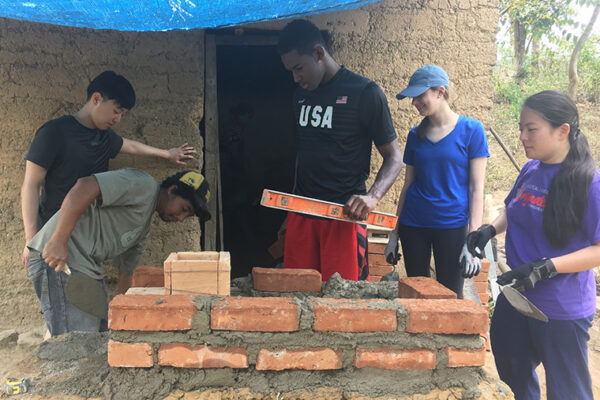
(Photo: Sid Hastings/Washington University)
As a young boy growing up in northern New Jersey, Washington University in St. Louis senior Rohan Gupta had an important choice to make: Would he be a New York Mets fan or a Yankees fan? He picked the Yankees. How could he not?
“They are the team others aspire to be,” Gupta said. “I loved everything about them — the history, the tradition, the players.”
And, starting in June, the paychecks. The New York Yankees have hired Gupta as a baseball operations associate, where he will crunch big data, “Moneyball”-style, to give his team a competitive edge. It’s a dream job for a student who is passionate about sports and statistics.
“It didn’t even come up in my interview that I’m a Yankees fan,” said Gupta, who majored in mathematics in Arts & Sciences and in economics and strategy at Olin Business School. “In the industry, it’s more about what can you do, not who you are passionate about.”
And Gupta can do a lot. He recently developed a pitch-scoring metric for Rapsodo, a St. Louis-based sports technology company that, among other services, provides Major League pitchers with useful data about pitch velocity, spin and rotation.
“You hear a lot about wins and ERA, but those stats are not necessarily the best way to evaluate a pitcher because they are dependent on the defense and your team,” Gupta said. “We wanted to come up with a metric that evaluates how the pitcher is impacting the game based on what he is doing to the ball — its trajectory, his motion.”
Gupta connected with Rapsodo after its general manager, Art Chou, visited his sports business analytics class, taught by Patrick Rishe, director of the sports business program at Olin Business School. Gupta had always dreamed of a career in sports analytics. Now, thanks to Rishe, he had a foothold.
“Dr. Rishe introduced me and my classmates to such a broad spectrum of sports careers and industry professionals,” Gupta said. “Because of all of his relationships in the industry, we were all able to make connections and build our own networks. You’re not going to get that sort of exposure in your typical classroom.”
Gupta also credits Student Life, where he currently serves as senior sports editor, for his communication skills. Sure, it’s impressive that Gupta can build a multinomial logistic regression model to optimize hitter launch angle. But can he explain that to right fielder Aaron Judge?
“Sabermetrics is still a new movement, and there are a lot of players who go to the majors primarily on the strength of their raw talent. Why should they listen to me?” Gupta said. “That will be my challenge — showing each player how to use data to his advantage. You have to let them do their jobs and use their data to their advantage, not your advantage.”
Why don’t other sports use statistics to the same degree as baseball?
Every play starts with the pitcher in a one-on-one matchup. It’s not free-flowing like basketball or soccer. And you have a huge sample size of 162 games per season and about 300 pitches per game. So you have a large volume of data points and a controlled setting in which to make inferences. Compare that to football, with only 16 games and far more variables.
Give an example of a stat that has fundamentally changed how baseball is played.
The traditional offensive stats — batting average, on-base percentage, slugging percentage — each have fundamental flaws when used alone. Weighted runs created plus, however, credits hitters for the run value of discrete outcomes and corrects for the hitter’s environment. Because teams better understand how to measure production, we’ve seen league-wide shifts in style of play. For example, small ball is down — stolen bases have decreased because the expected benefit of an extra base is less than the cost of making an out.
What was your favorite WashU sports moment to cover for Student Life?
The women’s cross-country national title in November. Cross-country is a difficult sport to write about because unlike traditional team sports, there’s no built-in narrative based on how two opponents interact. Expressing the sensations and precariousness of the meet required diving deep into the statistics and talking to every runner. It was unbelievable to capture their heart and to cover a WashU championship.
How do you feel about the Cardinals?
Love them. They are my favorite team in the National League.


